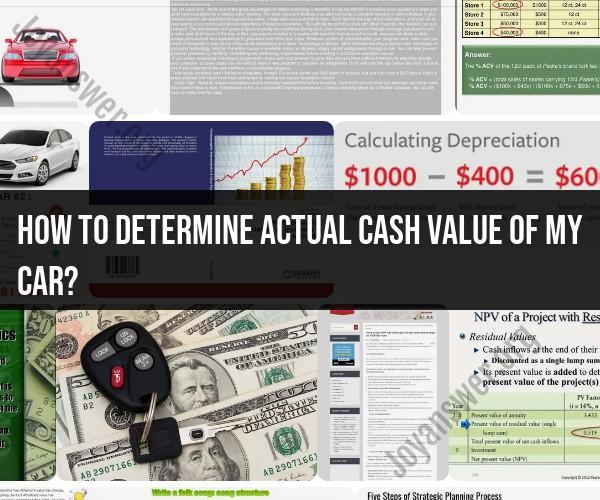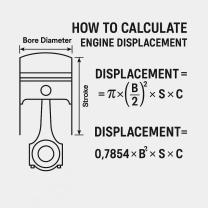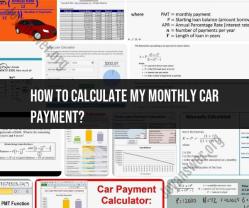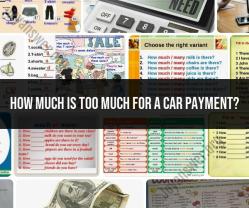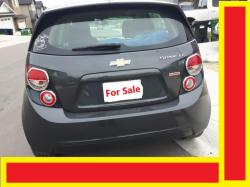How to determine actual cash value of my car?
Determining the actual cash value (ACV) of your car involves assessing its worth in the current market, taking into account factors like age, condition, mileage, and the local market conditions. Here's a step-by-step guide on how to determine the ACV of your car:
1. Gather Vehicle Information:
- Collect all relevant information about your car, including make, model, year, trim level, mileage, and any additional features or upgrades.
2. Research Online:
- Use online tools and resources such as Kelley Blue Book (KBB), Edmunds, or the National Automobile Dealers Association (NADA) to get an estimate of your car's value. These websites allow you to enter your car's details and provide an approximate ACV.
3. Consider Local Market Conditions:
- Keep in mind that the value of your car can vary based on your location. Factors like demand, seasonality, and regional pricing trends can influence the ACV.
4. Account for Vehicle Condition:
- Assess the condition of your car honestly. Most valuation tools categorize condition into several levels, such as excellent, good, fair, or poor. Be realistic about your car's condition to get an accurate estimate.
5. Factor in Mileage:
- Mileage is a significant determinant of a car's value. Generally, lower mileage cars are worth more. Take note of your car's mileage and consider how it compares to similar vehicles in your area.
6. Calculate Depreciation:
- Understand that cars depreciate over time. New cars lose value quickly in the first few years, and the rate of depreciation slows down as the car ages. You can use depreciation calculators to estimate how much your car has depreciated.
7. Get Multiple Quotes:
- To get a more accurate assessment, consider getting quotes from various sources. This can include using multiple online valuation tools, consulting with local dealerships, or even obtaining quotes from private buyers.
8. Document Upgrades and Maintenance:
- If you've made any significant upgrades or repairs to your car, keep records of these. Upgrades or well-documented maintenance can add value to your vehicle.
9. Negotiate with Insurance Companies (if applicable):
- If you're determining the ACV for an insurance claim, be prepared to negotiate with your insurance company. They may have their own methods for assessing the value of your car, but you can use your research to support your claim.
10. Consider the Salvage Value (if applicable):- If your car is totaled or has been in a significant accident, you may need to consider its salvage value. Salvage value is the amount you could get for selling the damaged car or its parts.
11. Consult with Experts (if necessary):- In complex cases or if you're having trouble determining the ACV on your own, consider consulting with a professional appraiser or mechanic who specializes in vehicle valuation.
Remember that determining the actual cash value of your car is not an exact science, and it may involve some subjective judgment. By following these steps and conducting thorough research, you can arrive at a reasonable estimate of your car's value, which can be useful for selling your vehicle, insurance claims, or other financial decisions.
How to Determine the Actual Cash Value of Your Car
The actual cash value (ACV) of your car is the amount of money your insurance company will pay you if your car is totaled or stolen. It is calculated by subtracting depreciation from the original purchase price of your car.
There are a few different ways to determine the ACV of your car. One way is to use a vehicle valuation tool, such as Kelley Blue Book or Edmunds. These tools take into account a variety of factors, such as the make, model, year, mileage, and condition of your car to give you an estimated ACV.
Another way to determine the ACV of your car is to get an appraisal from an insurance company or a professional appraiser. An appraisal will take into account all of the same factors as a vehicle valuation tool, but it will also consider any specific features or modifications that your car may have.
Factors That Influence the Appraisal of Your Vehicle's Worth
There are a number of factors that can influence the appraisal of your vehicle's worth, including:
- Make, model, and year: Some makes and models of cars hold their value better than others. For example, luxury cars and sports cars tend to depreciate more slowly than economy cars.
- Mileage: The higher the mileage on your car, the lower its value will be.
- Condition: The overall condition of your car, including its interior and exterior condition, will also affect its value. Cars with damage or excessive wear and tear will be worth less than cars that are in good condition.
- Maintenance history: A car with a well-documented maintenance history will be worth more than a car with no maintenance history. This is because a well-maintained car is less likely to have problems and will last longer.
- Features and modifications: Any additional features or modifications that your car has may also affect its value. For example, a car with a sunroof, navigation system, or aftermarket sound system may be worth more than a car without these features.
Maximizing the Value of Your Car in the Resale Market
If you are planning to sell your car in the resale market, there are a few things you can do to maximize its value:
- Keep your car in good condition: This includes washing and waxing your car regularly, as well as making any necessary repairs.
- Get regular maintenance: This includes oil changes, tune-ups, and other routine maintenance.
- Keep your car's records: This includes service records, registration, and insurance information.
- Make any necessary repairs: If your car has any damage, get it repaired as soon as possible.
- Consider adding features: If you are willing to invest some money in your car, you may want to consider adding features that are popular in the resale market. For example, a sunroof, navigation system, or aftermarket sound system can increase the value of your car.
Finally, when you are ready to sell your car, be sure to price it competitively. You can research the selling prices of similar cars in your area to get an idea of how much your car is worth.
